Miao Embroidery: More Than a Piece of Cloth
Publication time:2022-10-20 14:42:00
By Wei Yingling
A group of young girls are dancing to Lusheng and occasionally bursting into peals of laughter. Their pleated skirts are adorned with colorful embroidered totems, swaying slightly with their steps. Such is the scene in Rongshui County, Liuzhou, where inhabits a small group of Miao minorities. As a minority without recorded history and written language, Miao turns to embroidery to preserve their ethnic culture. With stitches going back and forth, the legend of this nation was told in the embroidery on their clothes.
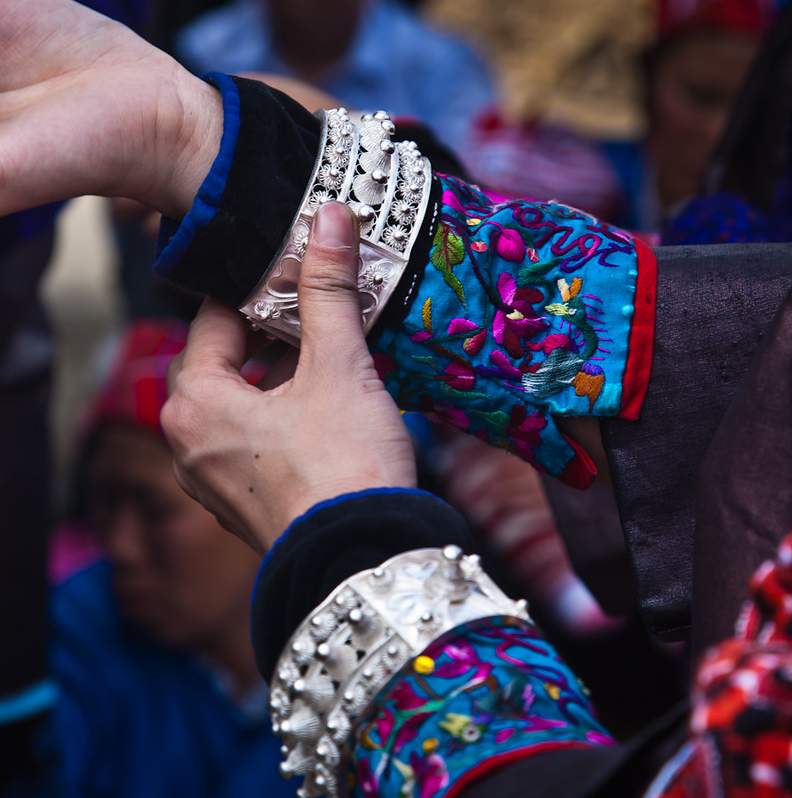
Tips: Lusheng is a Miao musical instrument. It is a mouth organ with multiple bamboo pipes that has special significance in Miao people’s wedding and religious ceremonies.
The origin of Miao embroidery
Legend has it that the origin of Miao embroidery can be traced back to when Miao people had to relocate their settlements several times due to the battle between the Yellow Emperor and Chi You. Lan Juan, a Miao chieftainess, devised the idea of using colored threads to record her migratory journeys. She embroidered a yellow line when crossing the Yellow River, a blue line for the Yangtze River, and a symbol mark for mountains. By the time when Lan Juan arrived at her destination, she had embroidered every piece from her collar to the leg of her trousers. Since then, Miao people have worn hand-embroidered customes on important occasions to remember their departed homeland and wise predecessors.
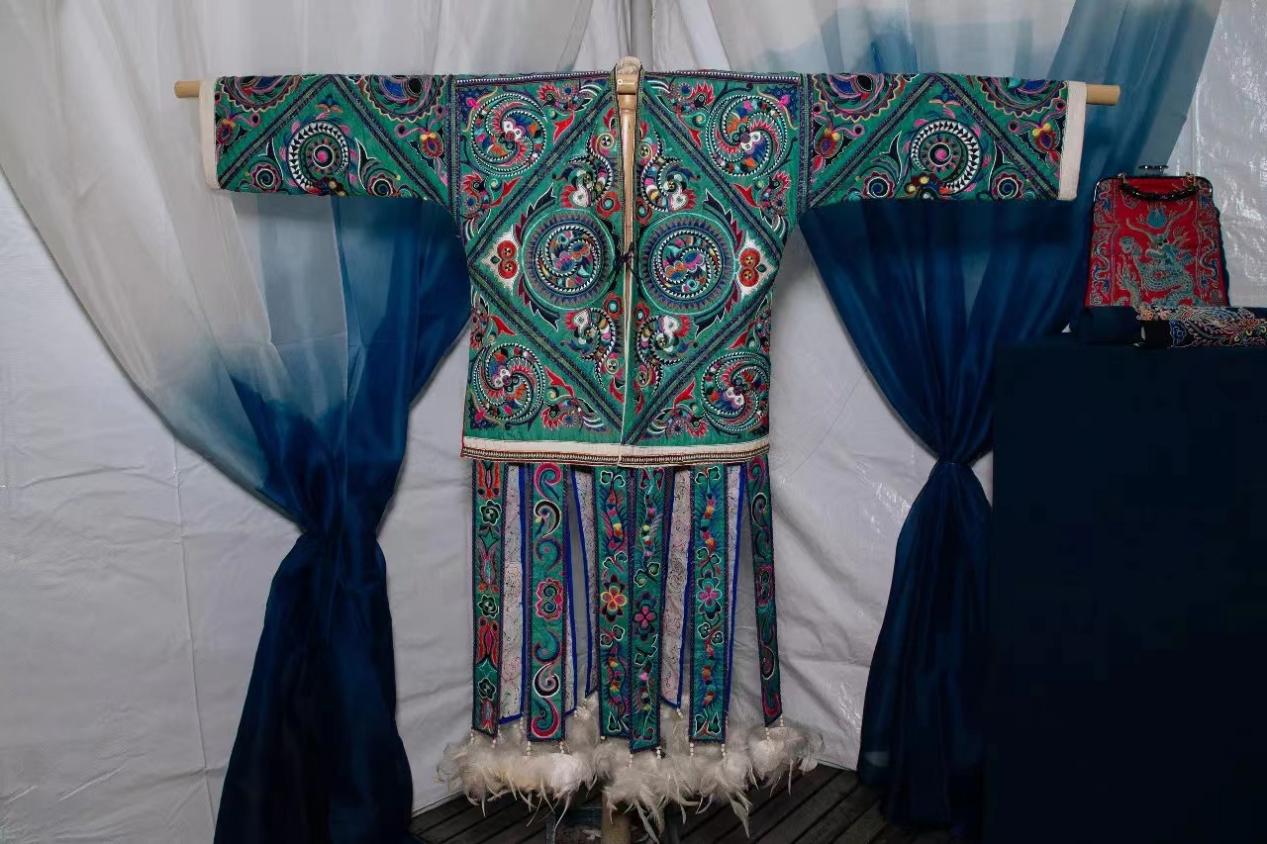
Women have been the keepers of this art form over history. Traditionally, Miao embroidery is mainly applied to adorn a girl’s ceremonial costume that she will wear on her wedding day or other important occasions. A young Miao girl would learn from her mother all the skills needed when she turned around seven years old. It doesn’t mean they would marry at that age, but a full set of Miao costumes takes years. The Miao costume is a representation of their migration history to make. The process of sewing makes its meaning goes beyond its aesthetic qualities. It carries not only a lady’s hope and dreams for love and life but also something that, potentially, can be handed down from mother to daughter.
Intricate, exquisite, and stunning
One of the features of the Miao embroidery is that its color is rich and sprightly, which makes people feel warm, bright, and passionate. And the dense patterns make the colors even more gorgeous and splendid. Another characteristic is that every piece of the embroidery is completed by using several stitches and techniques, making it intricate and tasteful. Miao people believe their heavenly ancestors will always have eyes on them as they sew. If they don’t embroider well, they will be punished. And it will be a shame for them to wear. Miao people’s worship of their ancestors gives their embroider eternal power, allowing them to create exquisite Miao costumes. To make a stunning dress, according to this standard, will take at least four to five years. And at most, it will take one’s entire life. The complete set of Miao embroidery starts from weaving, and then follows the whole process of inserting weft, tightening, dyeing, embroidering, and so on. The most complete progress of Miao embroidery, however, is singing while embroidering.
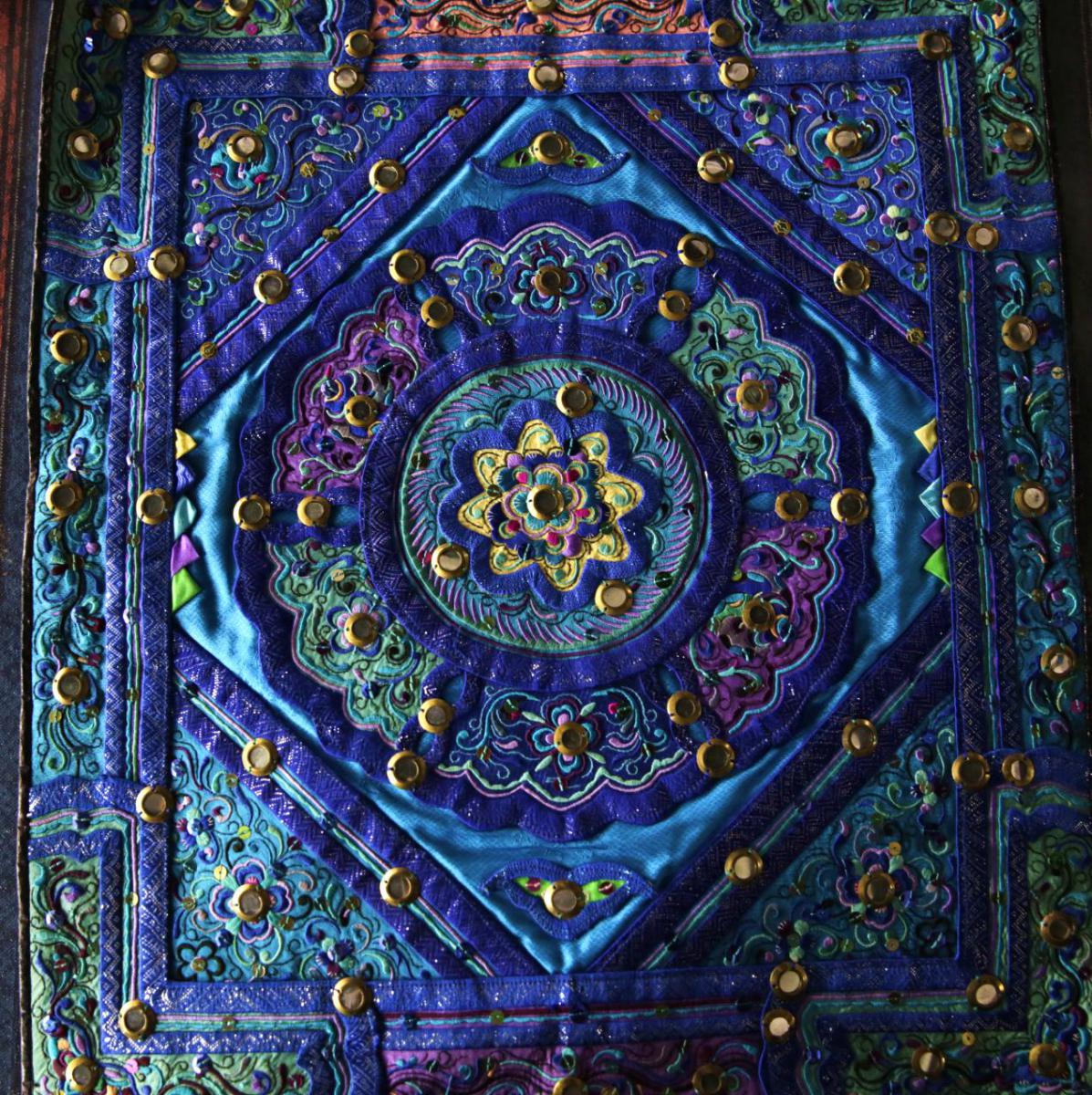
If the costume is a condensed history of the Miao people, then the embroidered patterns are a more vivid, specific, and thorough language expressing the Miao people’s understanding of nature and the origin of life. In Miao culture, every totem has a different meaning: a butterfly stand for the Protective Mother, a bird for eternal love, a flower for the beauty of nature, and fish with a round head, fat body, small mouth, and big eyes represents Miao people’s wish to live long and prosper. Besides, almost every Miao village stands a banyan tree in the center. The ancient banyan tree symbolizes the feminine power of Miao women. Locals say the tree is shaped like a dancing lady, with her roots deep in the ground and her branches reaching to the sky.
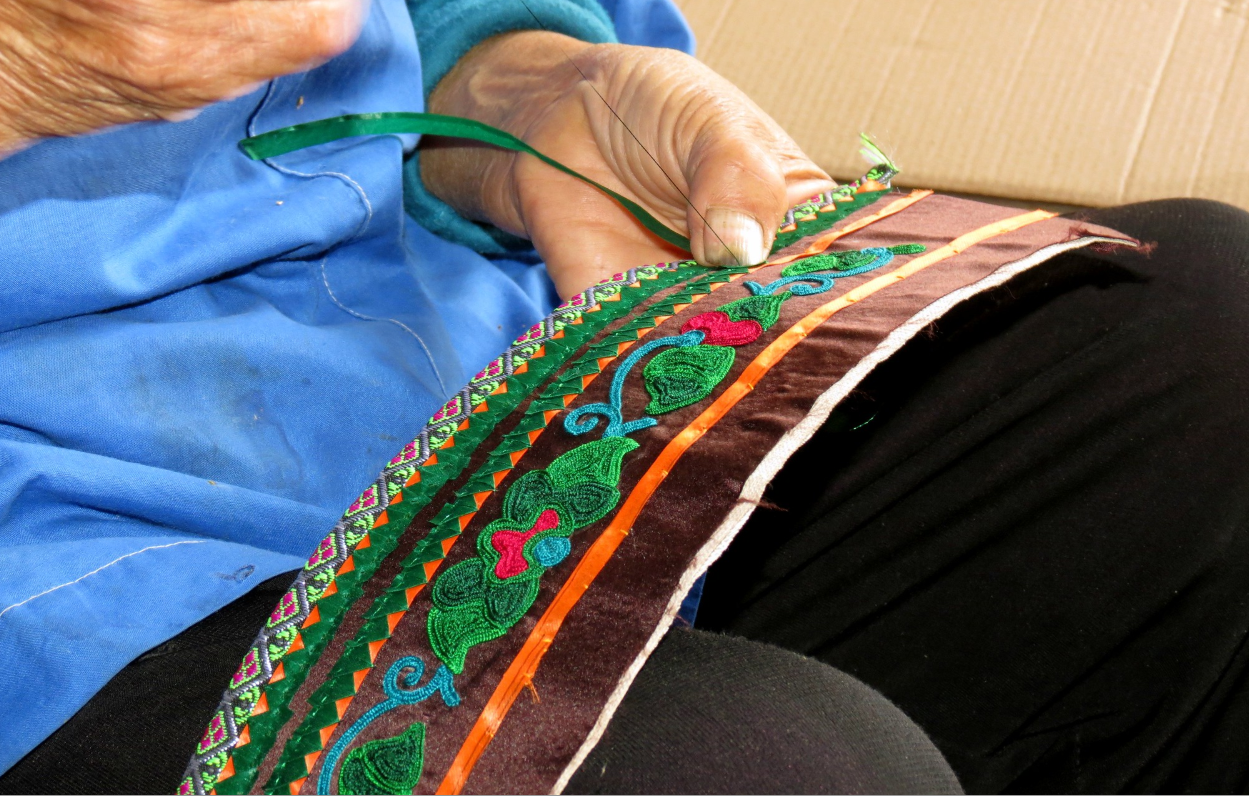
What’s traditional also fashionable
In recent years, this beautiful dance of fingertips has helped Miao women to gain a promising and brilliant future. It is getting a new life through poverty-reduction programs in China. The inheritor of Rongshui Miao embroidery, Li Yiyuan, established the Caiyun workstation in Rongshui and set up training classes to improve the skills of local embroiderers. More than 60 females took the class and helped lift their families out of poverty. Their works include traditional Miao formal costumes, accessories, and jewelry. Since then, Miao embroidery has become an indispensable element in adorning clothes, shoes, bags, earrings, jewelry, and even daily necessities and can be found almost everywhere.
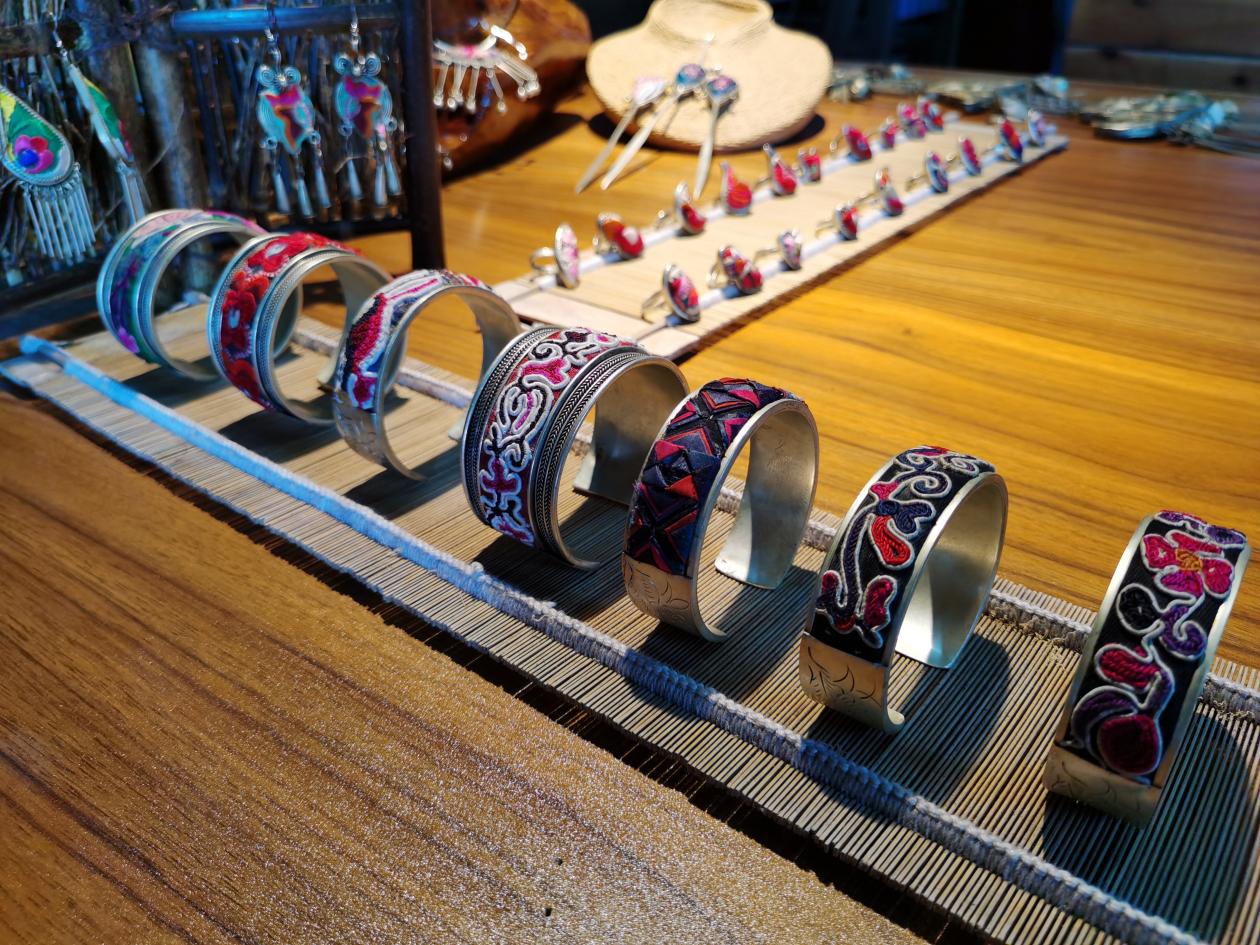
Culture belongs to the world, and thus it is interlinked, so does the beauty. In 2017, the Miao embroidery stepped onto the stage in Paris, finding itself a place in the world of haute couture. More than 90 Miao embroideries were showcased on the pavilion. Visitors from all over the world were wowed by the high-quality craftsmanship of Miao embroiderers and wanted to reserve their works. Behind the stage, the embroiderers were also excited about their national culture that was brought into limelight. “The more I know it, the deeper I love it. The longer I stare at it, the more beauty I find.” A British lady said at the pavilion, “I believe this will be the best Christmas present for my daughters this year.”

